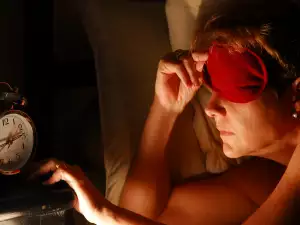Many experiments have been carried out for the study of paradoxical sleep. It turns out that every 80 to 90 min, it replaces deep sleep. When it first appears, paradoxical sleep is not continuous - only 9 min. - the shortest out of all sleep cycles. The closer we get to the morning hours, the longer the periods of paradoxical sleep become, and before we wake up - it can last longer than 30 min. In one night, the total duration of paradoxical sleep is from 1.5 to 2 hours.
What happens in the brain during this time?
This is the phase when a person dreams. Without a shadow of a doubt, it has been proven that this is the only phase when a person dreams. It has also been proven that everyone dreams, without exception; some remember them, while others do not. Dreams are a necessity for the body. This conclusion has been reached after multiple experiments, where when the phase of paradoxical sleep begins for the participants, they begin to dream, which is also proven by eye movement.
If the participants in the experiment are purposefully prevented from going through this phase of sleep, a drastic change in character is observed: they become irritable, anxious, suspicious, have difficulty concentrating or the opposite - focus on only one thought. All of these are unpleasant consequences from the lack of dreams.
By studying dreams, scientists have discovered interesting, often unexplainable, and sometimes intriguing facts.

Women suffer from insomnia more often
Young people often complain about difficulties falling asleep, while older people complain about waking up throughout the night. Results show that the risk of insomnia is greater in women than in men.
- In 37% of cases, stress is the reason;
- In 38%, because of unwarranted anxiety;
- In 22%, because of depression.
Unfortunately, most people reconcile, believing in the principal - best to do nothing and wait for the problem to solve itself, since it is incurable.
The amount of sleep lost is significantly less than what patients reveal. There are many reasons for insomnia.
Depression causes sleeplessness, where a person wakes up early in the morning and cannot fall asleep again. Alcohol addiction can cause early morning waking, anxiety can cause difficulty falling asleep, while pain and diseases, such as emphysema, anorexia and dementia can prevent falling asleep. In other words, sleeplessness occurs when a person is unable to benefit from their rest, because they sleep too little or don't sleep well.
Insomnia is part of the problem of sleep disorders, occurring due to disturbances in the rhythm, quality and quantity of sleep, as well as narcolepsy (excessive sleeping).

Another group of sleep disorders is parasomnia, the occurrence of an unwanted and anomalous event during sleep or during the transition period from wakefulness to sleep.
This group contains:
- Sleepwalking.
- Somniloquy (sleep talking).
- Nightmares.
- Bruxism (clenching/grinding your teeth).
- Restless leg syndrome.
The duration of sleep varies in different people and can undergo changes in the same person as they age. These include:
- Isolated cases, which last several days and usually accompany particularly stressful events;
- Insomnia for a period of less than 3 weeks, going away spontaneously or when taking medicine.
If such a condition goes on for more than a month, seek a therapist.












